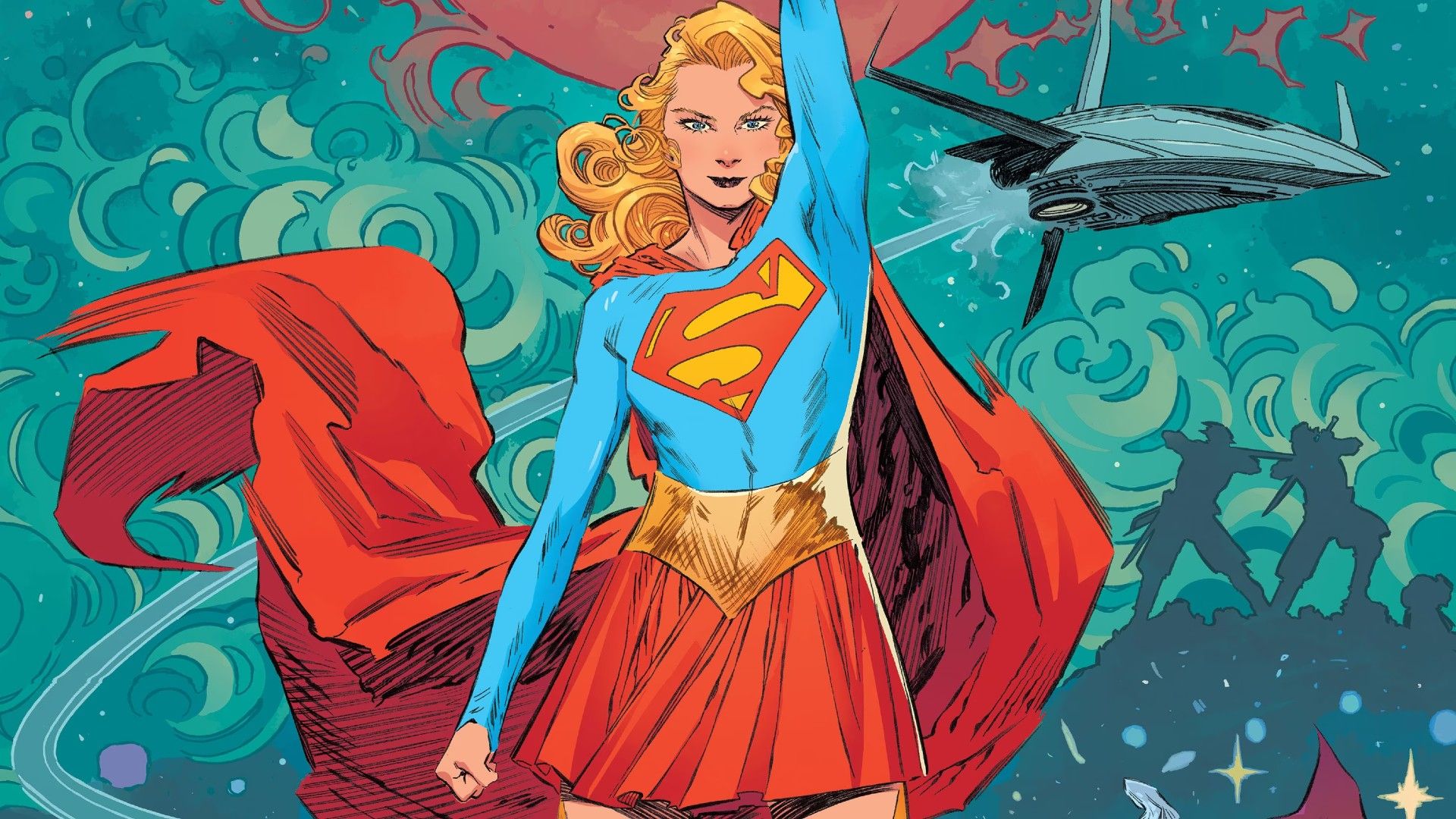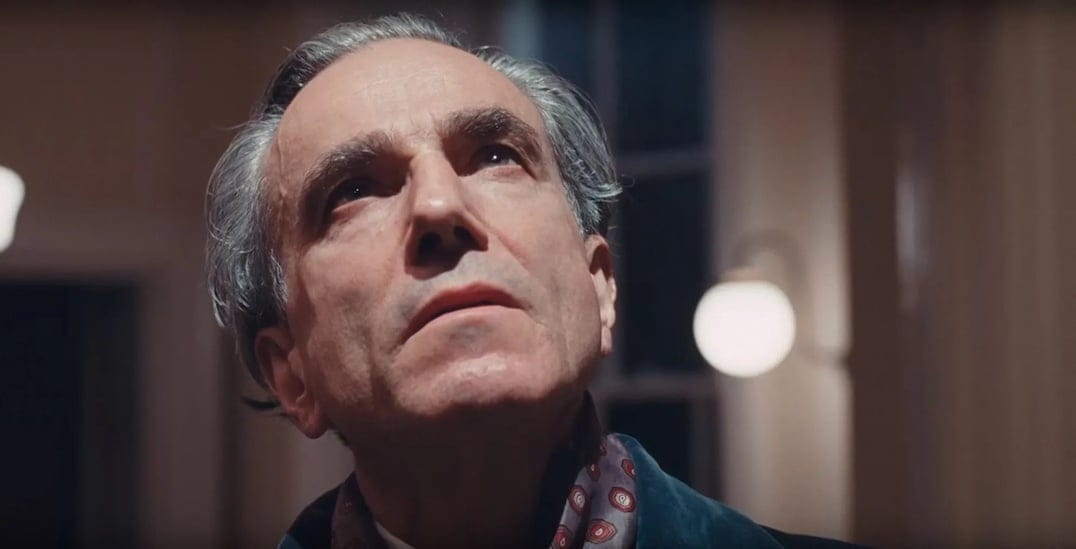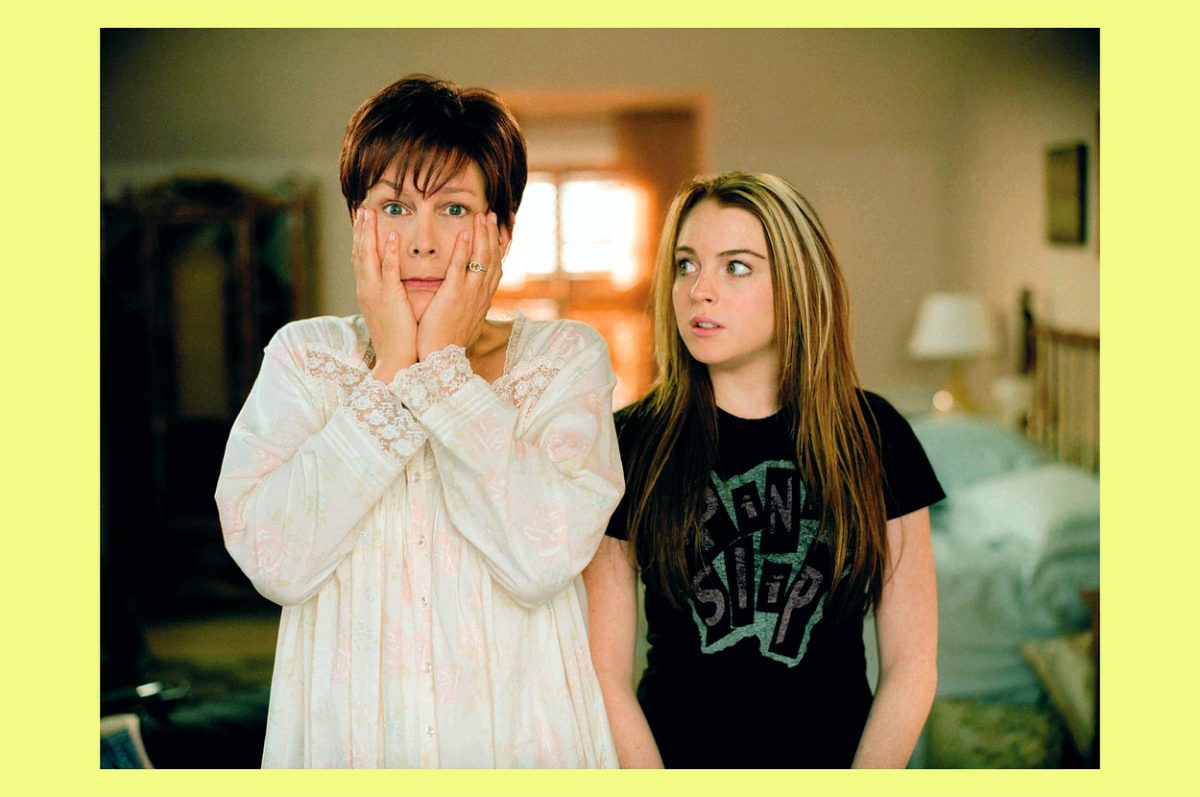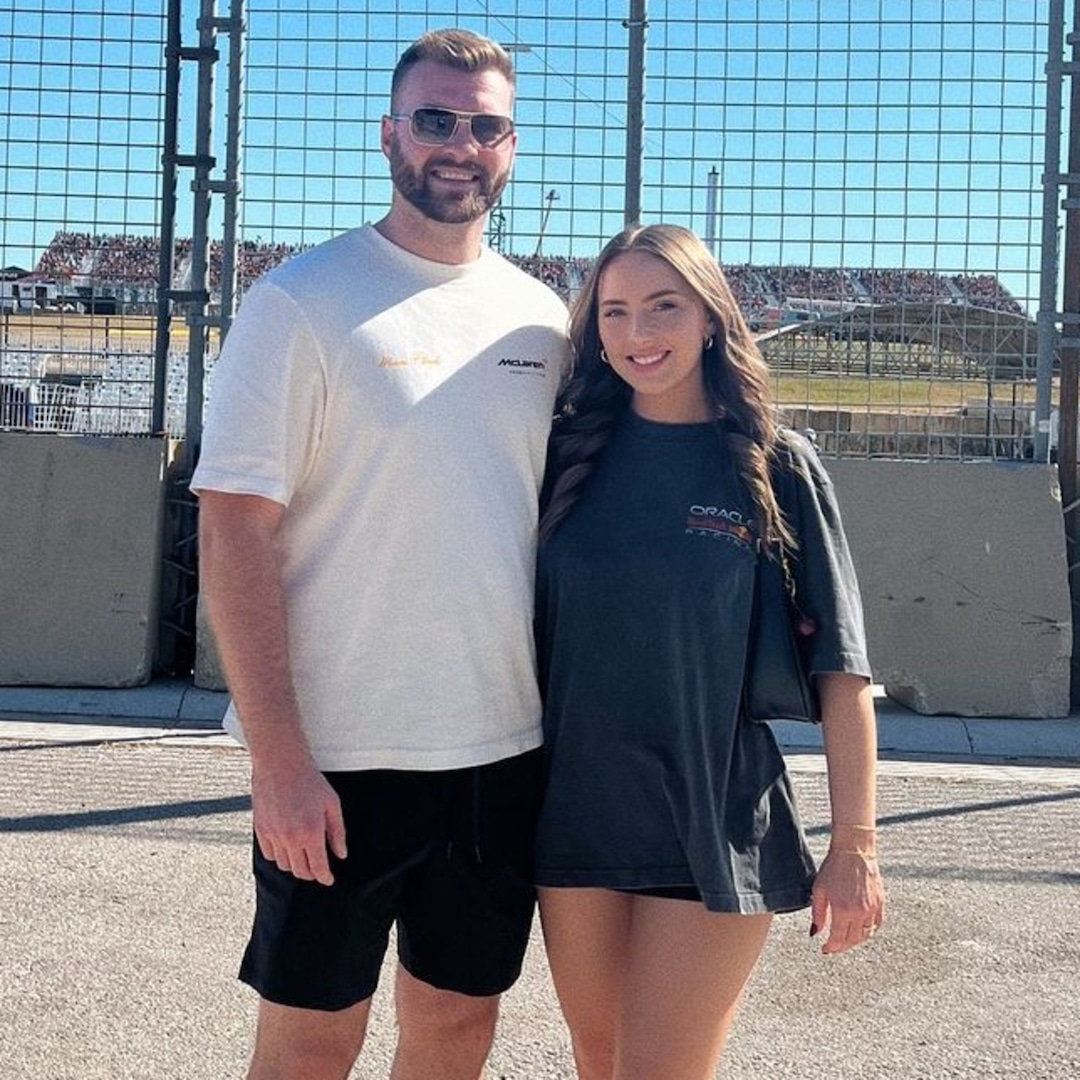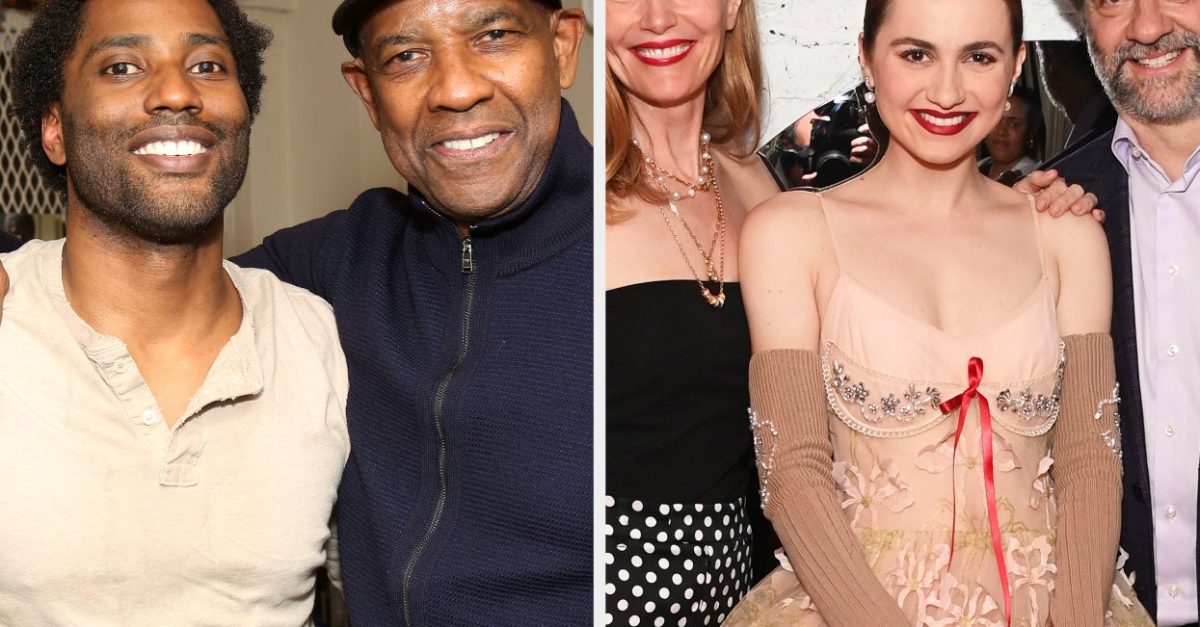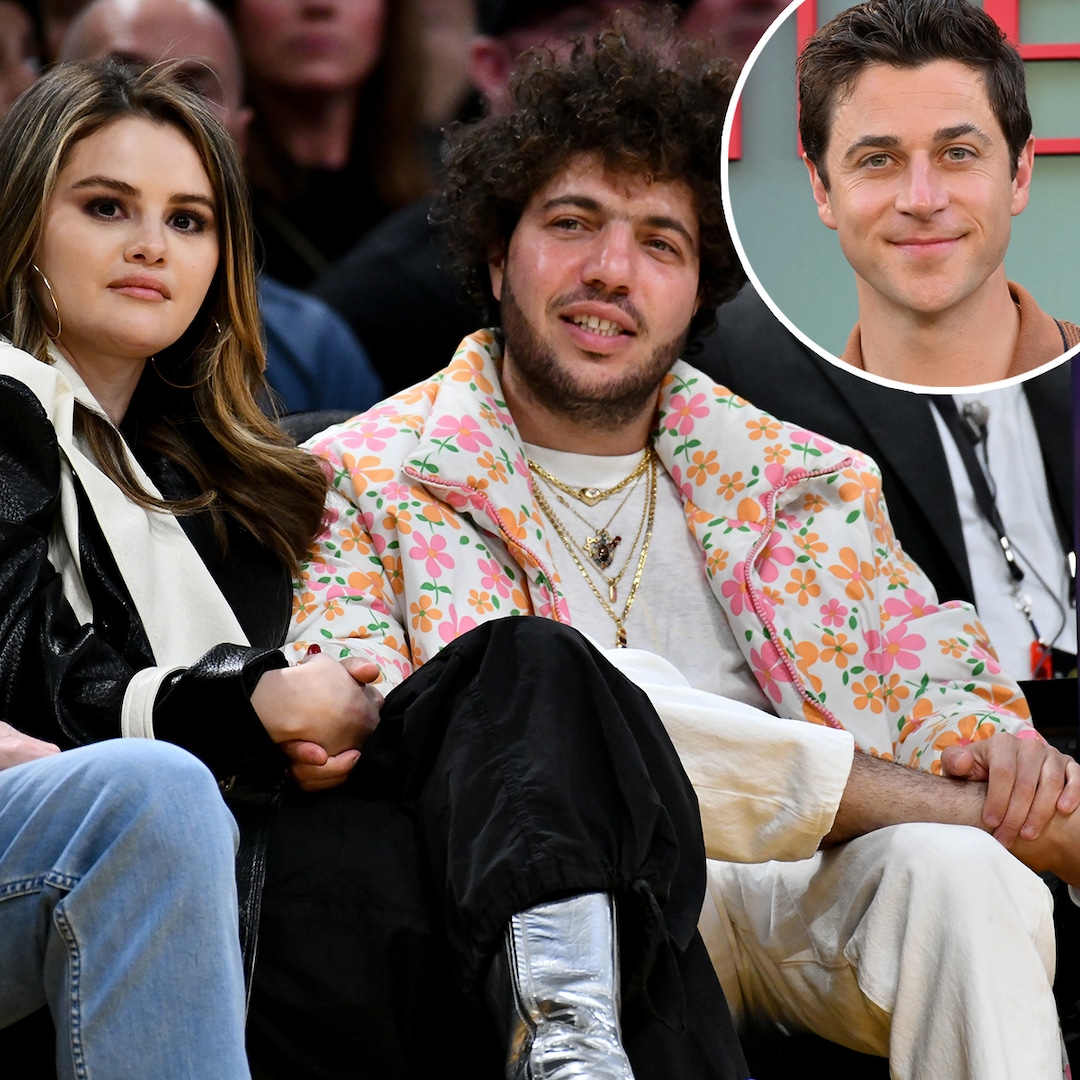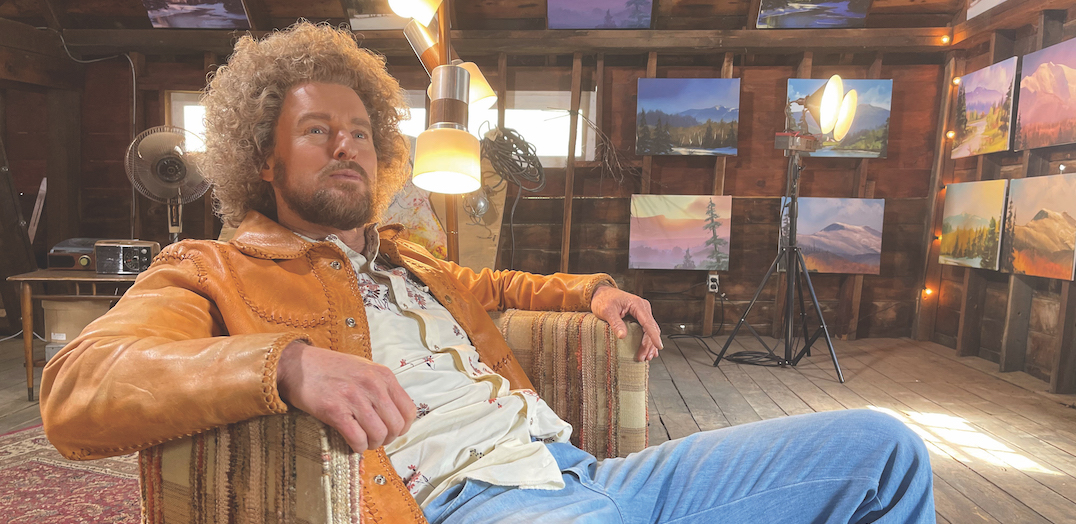
Owen Wilson Is an Artist Confronting Middle-Age in Paint
Mar 26, 2023
Owen Wilson remembers that about a decade into his acting career, he got Lasik for nearsightedness.
He was worried it might hurt his performances, because before the surgery, he could always ignore everything on the periphery — the lights and cameras and action behind them — and just focus on his role. But maybe now that he could see better, everything that had been a blur before would come into focus.
And distract him.
“I remember being a little bit nervous to get it done — aside from the thing of that laser coming right down into your eye,” says Wilson. “Just thinking, ‘Well, I know when I’m acting, when I’m working on something, it helps that I can’t really see, that people are sort of blurry, out beyond the camera. What if I could actually see their expressions really clearly? That might sort of inhibit me, or make me nervous.’”
He had first gotten glasses in college, and remembered how much the world changed — “all of a sudden you can see the trees, the detail” — and worried it might change again. But somehow it didn’t. When he went back to film sets with his improved vision, everything was fine.
“It didn’t matter at all, because I never noticed people’s expressions. And I guess it’s because when you’re really sort of immersed in something, you’re just kind of in it.”
It reminds him of a 1965 book by John McPhee, about basketball star-turned-senator Bill Bradley, and how during games, “he would really get into the flow. All that other stuff kind of disappears. And so that’s a good feeling. And that must happen sometimes. Luckily, for me, when I’m working, that other stuff just kind of fades away.
“It seems like a lot of spiritual programs talk about it — that’s become a popular thing to mention, being in a moment,” he adds. “That probably gives you a better shot at kind of feeling good in your life.”
Owen Wilson on the Spring 2023 cover of MovieMaker.Maybe, I offer, his nearsightedness early in his career helped him through what might have been stressful times: like starring in 1996’s Bottle Rocket, the breakthrough movie he co-wrote with his University of Texas roommate, Wes Anderson, co-starring the monumental James Caan; or co-writing The Royal Tenenbaums with Anderson, who directed both films; or trading Tenenbaums lines with Gene Hackman.
Maybe his inability to see clearly gave him an in-the-moment focus he wouldn’t ordinarily have had, until he achieved the confidence that only comes with years of practicing your craft?
No, he says. He was confident on sets from the start. It surprised him.
“I think that I had it right at the beginning,” he says. “For some reason I wasn’t nervous, even when we were doing Bottle Rocket, even doing scenes with James Caan, or Meet the Parents, that stuff that I did kind of early on where I would have thought I would be very nervous.
“It was just an ability, the way you do in sports or playing something. Anytime you’re happily doing something or engaged, you’re in it, and you don’t notice a lot of other things. Unimportant and inessential details just fade away.”
Of course he gets nervous sometimes, even if he always seems so relaxed on screen. He excels at playing men who will beat you without seeming to compete. It makes him a perfect comic foil to the anxious, type-A comic persona of Ben Stiller, whose buttons Wilson has coolly pushed in franchises from Meet the Parents to Zoolander to Night at the Museum.
That Owen Wilson SNL Monologue About Staying In His Comfort Zone Took Him Out of His Comfort Zone
But Wilson has been known to feel nervous on the first day on a set, for example. And nerves kept him from hosting Saturday Night Live until October 2021.
“I’m not comfortable public speaking, and I have never done Saturday Night Live until just recently, because I had always been too nervous. I always said there’s just no way I can do that,” he says.
In his SNL monologue, one of the most seemingly relaxed in recent memory, Wilson delivered self-effacing jokes as his older brother, Andrew, and younger brother, Luke, watched from the studio audience. He shared snatches of his origin story, like acting out as a middle child and ending up in military school in New Mexico at 16.
“My dad always said he was the charter member of the 3790 club: Three sons, seven high schools, nine colleges, zero degrees. Which was actually pretty generous of my dad to put it like that, because my brothers only went to one high school and college each.”
He also shared a negative review that said his “on-screen persona has all the ambition of an old Golden Retriever laying next to a fire.” (Which doesn’t sound so bad, he later noted.) He also joked about his fondness for sequels.
“To be honest, I probably have been guilty at times of coasting a little, taking my foot off the pedal,” he said in the monologue. “But I’ll tell you what: When Daniel Day-Lewis retired, and all that pressure landed on my shoulders? Everything changed. And that’s when I knew I had to do Cars 3.”
Jokes aside, Wilson does think about the future, and his place in it, and in making it turn out the way he hopes it will. He’s known for being hilariously competitive in low-stakes situations — challenging friends to contests like leaf-catching or Tip Horse, a game he created as a child that combines basketball and Blackjack. These made-up sports were detailed in a 2021 Esquire profile in which Wilson, at one point, challenged the writer to a footrace.
A few of Wilson’s films lately — including 2017’s Cars 3, in which he again voiced the lovable racer Lightning McQueen — have focused on people (or cars) in middle age, trying to decide how to deal with upstart rivals. In 2016’s Zoolander 2, his golden boy model Hansel feels left behind by the fashion world. And in Paint, his latest film, he plays Carl Nargle, a Vermont public access painter who fears being put out to pasture.
While you can see the money poured into making sure Cars 3 and Zoolander 2 connect (which they do), Paint is a much scrappier, more DIY endeavor. A Bob Ross-like hairdo, beard and mustache don’t hide Carl’s vulnerability as he reckons with the possibility that his comforting routine is getting old. Does Wilson spend much time worrying about adapting to a changing world?
“I don’t know if it’s caring about it so much as noticing it,” says Wilson, 54. “And there’s just no way not to notice it. You’ll see something, like just the other day, this new search engine that has A.I., and just kind of wonder, ‘Well, what sort of sea change is that going to bring about?’ … As you get older, sea changes seem to portend something — I don’t know if it’s ominous — but something about how you fit into that.
“I have two boys that just turned 12 and 9,” he adds. “There’s no getting around it. … I’ll have college kids or kids in their twenties that will say something about Lightning McQueen. It’s hard not to notice the passage of time.”
Brit McAdams, the writer-director of Paint, realized quickly in his talks with Wilson that they shared a certain perspective on “hitting an age where you’re looking back on your life and looking forward and seeing the world changing — and just being aware that you’re not the one changing it.”
Paint writer-director Brit McAdams paints Owen Wilson.McAdams started writing Paint about 15 years ago, before he turned 40, and the story has grown and evolved with him.
“You’re at a point where you’re changing, because the world is changing, as opposed to you’re changing the world,” McAdams says. “I really do try to be on the side of right. And I realized that just based on my age, and just the world I grew up in, I may not naturally be on the side of right to start.”
On the Road Again
In Cars, Lightning McQueen learns not to leave old things behind by pushing an older car called The King (Richard Petty) to the finish line. In doing so, he also pays respect to his new mentor, Doc Hudson, voiced by Paul Newman. By Cars 3, Lightning McQueen is in danger of losing to a new generation of racers, but fights his way back to greatness with help from a trainer named Cruz Ramirez (Cristela Alonzo). At a key moment, instead of seizing glory for himself, he recognizes the perfect opportunity to gracefully pass the torch.
One way to shape the future is by mentoring, and sharing what you know. Owen Wilson has had many chances to learn from the iconic actors who came before him, from Caan to Robert De Niro in Meet the Parents to Hackman — with whom he appeared in not just Tenenbaums but also the drama Behind Empty Lines, both in 2001 — to Christopher Walken in 2005’s The Wedding Crashers. Were any of them mentors?
“It’s more for me a good feeling, or satisfying feeling, that I got to work with some of those guys,” he explains.
What about Newman, who played his animated mentor in Cars? Wilson says that when Ethan Hawke’s recent documentary about Newman and Joanne Woodward, The Last Movie Stars, was released, he went on a Newman kick, like many fans did.
Also Read: Ethan Hawke Knows Why Paul Newman Burned the Tapes From The Last Movie Stars
“I went back and watched The Verdict and some of these other movies and I was thinking, God, it is incredible that I was around that guy a little bit. And what seems even more incredible is that I do not remember more.”
He does recall a Cars press junket at a NASCAR event. “I remember him driving one of the cars and doing a few laps, and he was obviously a really good driver. But I know that we were just kind of left in his trailer to have lunch, and I do not remember the conversation. Maybe there wasn’t that much conversation. Maybe it was like a typical press junket, especially for him, where he’s just kind of tired. And after some pleasantries, maybe we just sort of ate in silence. It seems unbelievable, but maybe I just can’t believe that I wouldn’t remember more about it.”
Paint writer-director Brit McAdams, Camera Second Assistant Chase Lowenstein, and Property Master Thorstein FossWhat about Willie Nelson, with whom he and Woody Harrelson regularly play poker in Maui? Nelson seems like someone who has it all figured out.
“I think that it’s less a feeling of, ‘OK, this person has it figured out,’ and more a thought that the road goes on forever, in terms of being creative. You’ll go over and he’ll say, ‘I was working on this,’ and then have some lyrics or something. I think there’s some people who, in order to feel happy in life, have to really be engaged creatively. And then, you know, the obvious stuff that I think we all sort of know — family and friends and how important they are.”
He adds: “I don’t know if you ever have things completely figured out. Or you might, one day. And then the next day, you’ve stayed up late playing poker, and you lost, and you wake up in a bad mood, and you couldn’t feel further from having things figured out. You can have it figured out, figured out, figured out, not figured out.”
Tango
Some of the best advice he received came second-hand, from Robert Duvall.
“I do remember this actor was working with Robert Duvall, and Robert Duvall told them, ‘It’s really important as an actor that you have something that you’re really excited about, some interest beyond acting.’” For Duvall, it was always dancing the tango. For Owen Wilson, it’s reading.
He has spoken in the past about his literary loves, like Huckleberry Finn and The Snow Leopard, and references several books as we talk, from the McPhee book about Bradley (“A Sense of Where You Are — I’ve always loved that title”) to an intriguing book he can’t quite recall the name or author of (“one of those Malcolm Gladwell type books, but it isn’t Malcolm Gladwell”) to a new book by his mother, photographer Laura Wilson, whose work has appeared in The New York Times Magazine, The New Yorker, Vanity Fair, The London Sunday Times Magazine, and many other outlets. For her latest book, The Writers: Portraits, she photographs authors like Gabriel Garcia Marquez, Zadie Smith, Margaret Atwood, Tom Stoppard and Richard Ford.
The book reinforced again for her son “how important it is to be engaged with something creatively,” he says.
Paint is a reflection of both of Wilson’s parents, in a way: His mother was an artist, and his father ran a PBS station in Dallas for years.
The film, which comes out on April 7, might never have happened if Brit McAdams hadn’t been fired from a TV gig. Years ago, he was hired to write the spring upfronts presentation for ABC — a thankless job that involves hyping up the next season’s TV shows for advertisers — when the network decided to go in a different direction.
Flying home in first class, on ABC’s dime, he noticed the woman sitting next to him was reading scripts.
And that he’d gone to high school with her.
UTA’s Shani Rosenzweig is one of Hollywood’s top agents, and Owen Wilson is one of her biggest clients. She became an early supporter of Paint, and got it into Wilson’s hands.
Though the script spent several years in development, Wilson eventually came on as both star and producer, going over the script with McAdams in late-night Zooms.
“He’s just so good at calling out what doesn’t make sense or isn’t moving the story forward. He’s just a very talented person. And he’s also a nice person. You learn so much about people as you’re shooting. You watch dailies, and Owen’s making sure the camera operator is comfortable where she’s sitting, and trying to get her a cushion.
“Or he would help us push cars,” McAdams laughs.
Paint star Michaela Watkins and camera operator Jesse Sanchez-Strauss on the set, in one of the film’s vintage vehicles.The cars in the film provide a good example of its indie sensibility. Paint was budgeted in the single millions.
“We got all the picture cars off of Craigslist, where people were selling them. We were tight with budget, so we would contact people on Craigslist and say, ‘Hey, you’re trying to sell this 30-year-old Toyota? Can we rent it from you for a couple of weeks, and we’ll give it a tune up and return it in better shape?’”
Lightfoot
Though much has been made online of Carl Nargle’s resemblance to Bob Ross, McAdams and Wilson landed on another inspiration for his look: Gordon Lightfoot, the Canadian singer-songwriter best known for an impeccable run of 1970s hits that included “Sundown,” “The Wreck of the Edmund Fitzgerald,” and “If You Could Read My Mind.”
The latter turns up in Paint, in one of the most perfect matches of movie and song since “Hey Jude” turned up in Tenenbaums.
Wilson earned an Oscar nomination for co-writing that movie with Anderson, his third writing collaboration with the director after Bottle Rocket and Rushmore. Wilson can’t imagine how his life would have turned out if they hadn’t been college roommates.
“I maybe would have gone into advertising or something. And I say that only because that’s what my dad did, after he left the PBS station. And, you know, I always got pretty good feedback on writing. Although I didn’t write that much.”
Given Wilson’s obvious literary bent, why doesn’t he write anymore?
“When I talk to him, he’ll be on a hot air balloon with his two sons in Maui, and I’ll be putting up shelving in the closet,” laughs McAdams. “His life is so interesting and writing is so horrible, I understand why he’s not.”
Asked if he agrees, Wilson quotes Fast Times at Ridgemont High.
“I think that… yeah, maybe there is a little bit of that. What does Spicoli say to Mr. Hand? ‘As soon as I cruise history, I’m not coming near your side of the building.’ And so maybe there is a little bit of that feeling with writing sometimes, that it is a little like a term paper. And that kind of focus, and just holing up, can be something that you kind of resist, because it’s easier to show up on movies.
“Although writing with Wes — I wouldn’t describe that as lonely. That was kind of fun. I think that would be a good challenge to do, to kind of sit down, rather than contribute or try to make something better.”
Wilson found that McAdams had a sense of humor similar to his — and that the world of public television was a perfect place to explore it.
Wilson’s father, Robert A. Wilson, led Dallas’ public television station, KERA, starting in 1967. His accomplishments included hiring Jim Lehrer and leading the creation of Newsroom, a forerunner to the PBS series NewsHour With Jim Lehrer. Public television is a world of politeness, where a raised voice can register like a volcanic eruption. Paint has fun with this fact.
When we meet Carl, he’s hosting an hourlong painting show in which he frequently paints an almost identical scene. He enjoys driving around in his CB-equipped van, wearing old jeans and sandals, and squiring the women of the station away on fondue dates. It’s never exactly clear when the film takes place — it’s fairly recent, because it takes place at a time when Uber exists — but it’s clear that Carl lives cozily in the ‘70s.
When a dynamic new painter named Ambrosia arrives, played by the hilariously charismatic Ciara Renée, Carl feels pushed into retirement. Not because he’s getting older — but because he’s stuck in the past.
Which brings us back to where we started: being in the moment.
“What are you doing?” asks Marion Cotillard in 2011’s Midnight in Paris, after Wilson’s character surprises her with a kiss.
“I don’t know,” he says. “But I did feel, for a minute there while I was doing it, like I was immortal.”
To Wilson, being in the moment means challenging yourself: to keep crafting songs at 90, like Willie Nelson. To lock into every scene in every project, from Paint to Marvel’s Loki to this summer’s Haunted Mansion reboot from Disney. And to travel, because as Wilson puts it, “you can kind of go on autopilot sometimes in your life. … and traveling kind of forces you, because all of a sudden you’re in a new place, you’re a bit turned on with your senses. And then of course that feels good to me.”
In the Esquire piece two years ago, writer Ryan D’Agostino speculated about why Wilson likes competition so much: “Games are fun, and when people have fun together, they stay connected.”
There may be something else, too.
“I still have sort of a thing from growing up in a competitive family — some sort of competition,” says Wilson. “And it can be as simple as ping pong. You have that feeling of wanting to win. But also when you lose, you care.”
Paint arrives in theaters April 7, from IFC Films. Tickets are on sale now.
Main image: Owen Wilson as Carl Nargle in Paint. Photo courtesy of IFC.
Publisher: Source link
If you could swap lives with one celeb for a day, who would it be?
Guy Fieri (for the food).View Entire Post › Disclaimer: This story is auto-aggregated by a computer program and has not been created or edited by filmibee.Publisher: Source link
Oct 24, 2024
Eminem’s Pregnant Daughter Hailie Jade Shares Baby Souvenir From Texas
Born in 1955 at a military base in Kansas, Debbie is the mother of Eminem. She married the "Without Me" artist's father Marshall Bruce Mathers Jr. when she was 15, according to her 2008 memoir My Son Marshall, My Son Eminem. She began…
Oct 24, 2024
I'm Genuinely Curious If You Think These Nepo Babies Are More Talented Than Their Famous Parents
Tell us how you really feel!View Entire Post › Disclaimer: This story is auto-aggregated by a computer program and has not been created or edited by filmibee.Publisher: Source link
Oct 23, 2024
Selena Gomez’s TV Brother David Henrie Details Meeting Benny Blanco
Selena Gomez isn’t the only one who thinks Benny Blanco is magical. The Wizards of Waverly Place alum’s onscreen brother David Henrie—who stars in and executive produces upcoming sequel series... Disclaimer: This story is auto-aggregated by a computer program and…
Oct 23, 2024
